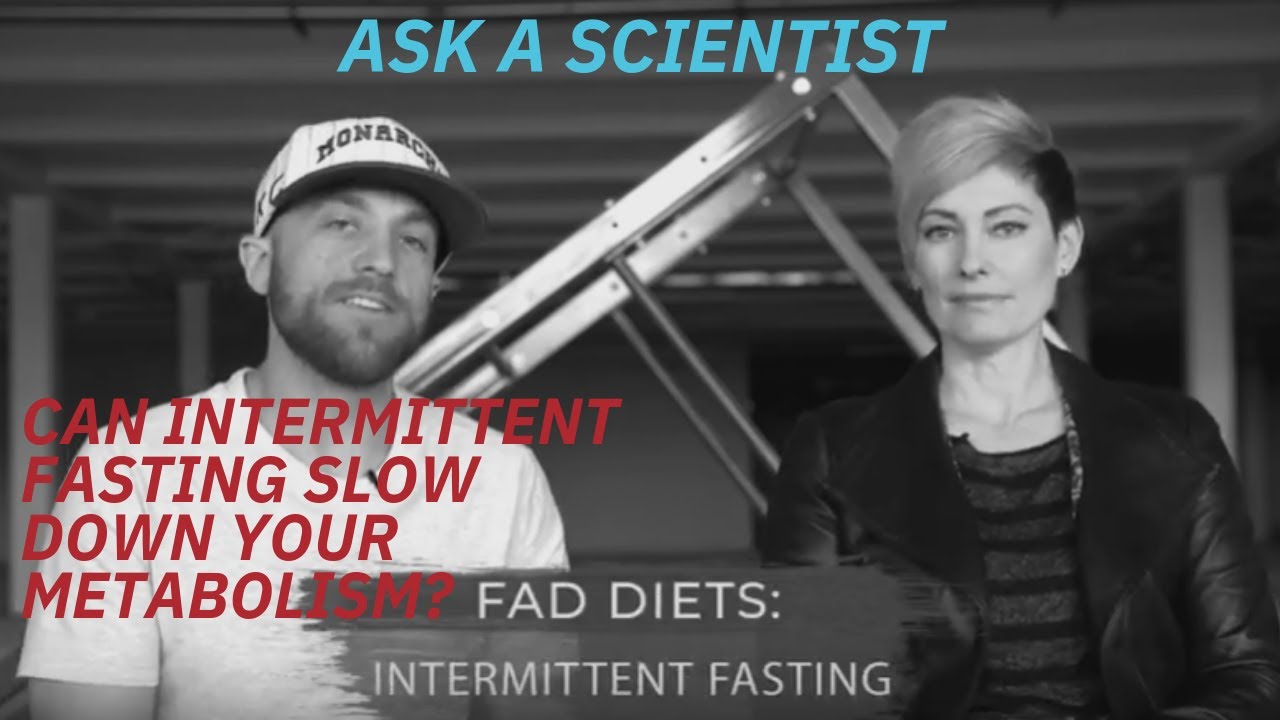Can intermittent fasting help with weight loss?
Intermittent Fasting (IF) has risen in popularity amongst some of the early adopters of fad diets. We’re asking the question: does it work?
The answer is… you guessed it: it can work. Like many fad diets out there, they can and often times do work. But our goal has always been to treat you like an adult and have a reasonable discussion about why it works. Does it work any better than something less “fad-like?”
Don’t like reading? Check out this video with Sabrena Jo, Director of Science and Research at the American Council on Exercise:
What is intermittent fasting?
IF is a way of eating that restricts all food intake to a specific window of time. Many IF prescriptions call for an 8-hour window of eating followed by a 16-hour fast. For most, the fast will start at 8:00pm and normal eating will resume at noon the next day.
Will intermittent fasting help me lose weight?
IF seems to be working on overweight rats in some studies. But how do these results translate to humans? One of the obvious ways that IF could help you lose weight is that it simply results in less calories consumed.
Here’s a very simple math problem that helps illustrate this point:
My basal metabolic rate = 2,000kcal (BMR is the amount of calories consumed to maintain my current body composition).
I consume 2,200kcal per day on my normal diet.
I switch to IF and eliminate any calories before noon.
I now consume 1,650kcal per day on IF.
I will lose about one pound of fat for every 3,500kcal restriction. Therefore, I will lose about one pound of body fat every 10 days on IF.
Don’t mistake weight loss for fat loss.
Here’s what most fad diets get wrong — there is no mention of WHAT we’re losing when the scale goes down. If Intermittent Fasting causes you to eat less calories but also less protein, you may also experience some muscle loss.
On the opposite end if the spectrum, IF may have you consuming more water than normal. This may cause you to “gain weight” simply through better hydration.
If you’re in Kansas City and starting a new diet routine Schedule a Complimentary Discovery Session where we can do a body composition scan to show you these numbers.
Does Intermittent Fasting work any better than a non-restrictive diet?
This is the question that we must always come back to: Is IF more effective than a diet of whole foods — mostly plants — lean meats, nuts, seeds, little starch and no sugar in portions large enough to support activity but not excess body fat?
The answer to this question is likely not. Most fad diets involve restriction. Restrict carbs, restrict fats, restrict time, restrict portions. You get the idea. By nature, restriction = reduction. Reduction in kcal = reduction in body fat. But reduction in kcal can occur by increased consumption of fibrous vegetables, lean meats, and healthy fats without any restriction.
Aaaaand here’s the big BUT…
Who is a good candidate for Intermittent Fasting?
There’s some interesting research coming out about the hormonal effects of obesity and weight loss. The main hormone we’re talking about is Leptin. Leptin controls how hungry or full your brain feels.
Please note this is where behavioral science meets biology. There has not been a correlation proven between intermittent fasting and leptin regulation. This is conjecture on my part.
Researchers are finding that — in obese populations — as someone is losing body fat their leptin levels drop. The drop in leptin causes a “starvation” reaction, causing someone to feel like they’re starving to death while on the way to a healthy weight. This is what is known as a negative feedback loop.
Think of leptin like your toilet. You flush your toilet and all of the water is drained out of the tank, pushing the waste down the drain with gravity. There is a valve in the tank that floats. That valve floats on top of the water line of the filling tank, automatically shutting off when the level reaches the top.
What does this mean for weight loss? No matter your body fat percentage — 5% or 50% — that is your normal. It is your current baseline. Your body will react to a reduction in that baseline with a starvation response. As you go from 50% body fat to 40%, your body only understands the loss of 10%. It is unaware that 50% body fat is dangerous territory. It actually feels the opposite — that losing 10% is dangerous territory.
How can intermittent fasting help obese populations?
One thing is certain and backed by a ton of research: learning to tolerate hunger is a must for people with obesity to achieve optimum health. AND IT’S REALLY, REALLY, REALLY FREAKING HARD TO DO.
Simply telling someone to ignore a hunger pang is like holding someone under water and telling them to “relax… I’ll let you up before it’s too late.” What?!?!?!?
Intermittent Fasting could potentially help someone “learn hunger.” There are clear rules and time set aside to “practice” being hungry. I recommend incorporating a mindfulness or meditation routine to accompany this “hunger practice” to help you manage the emotional stress of hunger.
But — don’t forget — there is always a more sustainable approach to assist with hunger. Eating a ton of vegetables and lean proteins will not only help you feel amazing, but you’ll also have the added benefit of feeling very full from all the low-calorie fiber.

